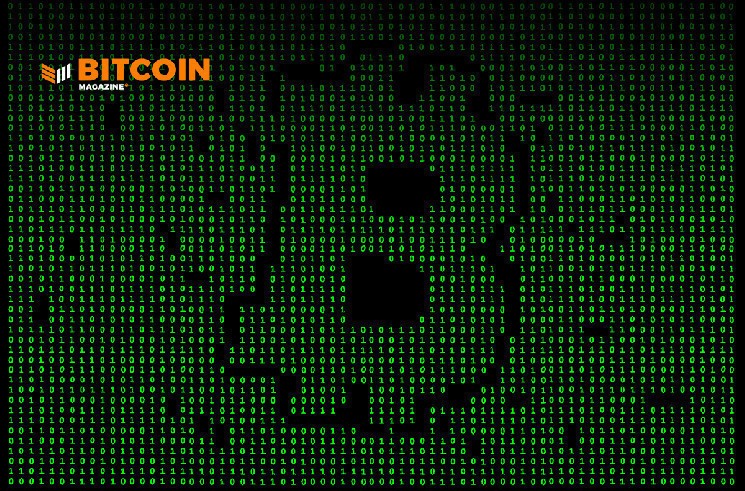Decentralized Bitcoin-Focused Social Media App Zion May Use Nostr In The Future

The recent introduction of the decentralized social media protocol Nostr took the distributed technology world by storm. Even Block CEO Jack Dorsey has espoused his fondness for the protocol, encouraging its usage, funding development and using it himself exceedingly often. In the meantime, Zion, a decentralized social media app, has watched as Nostr grew. I asked Justin Rezvani, CEO and founder of Zion, about whether the two are in competition. But he clarified that Zion and himself sees its benefits, and confirmed that he believes Zion will be closely intertwined with Nostr going forward.
“As far as Nostr goes, Zion is an application and Nostr is a protocol, so we don’t view it as competitive, but complimentary,” Rezvani explained. “Zion will likely use Nostr in the future. What we’re building centers around innovations in messaging, ID and payments. Zion is the first app for this technology. What we’ve built on decentralized identity (DID) and decentralized web nodes (DWNs) are complementary to what Nostr is doing and I am very excited to see how adding Nostr will increase the impact of the user experience for creators on Zion. That’s part of our goal and what guides us, a better experience for creators.”
One aspect of the decentralized content rolodex that Nostr is missing is data storage, Rezvani believes, but he says that Zion addresses this well: “The idea that you will post a video and Nostr relays across the world will just store that content for free is nonsense. You need a reliable data storage mechanism and I believe the combination of DID, DWNS and Nostr could be an incredible combination.”
In addition to this, is the idea of empowering content creators so that they can monetize themselves directly. Zion was actually one of the first to seize this opportunity, beating Nostr, which has recently witnessed an explosion in micropayment activity.
“Zion has had ‘zaps’ in our application since August of 2021 when we launched and had 120k ‘zaps’ in the first six months of being live,” Rezvani explained. “In a world where the cost of content is going to zero, you need something to signal the most impactful pieces of content. If someone is creating something meaningful that is resonating with their audience, it should be recognized and rewarded.”
There have been cautions raised in regards to Nostr’s key management and privacy. While the protocol is relatively small now, these issues could present large challenges later on. In regards to how Zion will address these issues, Rezvani said, “We use DIDs anchored to Bitcoin as your identity on Zion; When creating an account we give you a 12 word seed phrase, we don’t expose a private key,” citing a video posted further down on the previously linked Twitter thread.
Taking the crown as the world’s choice social media platform won’t come easy, however. Bitcoiners especially understand the power of network effects, and Twitter is by far and away the most-used platform in the world. But that’s not deterring Zion.
“Legacy networks have real problems that need to be solved now, and that’s what we’re executing on everyday through the lens of decentralization. That starts empowering the creator economy to take ownership of their content, their data and their communities and build something that is truly their own,” Rezvani said.
And he won’t be alone. Meta is reportedly beginning work on its own decentralized Twitter alternative, seemingly realizing the benefits that such a platform brings. With Meta’s entrance, fierce competition, healthy for the decentralized social media market, is beginning to brew.






 Bitcoin
Bitcoin  Ethereum
Ethereum  Tether
Tether  USDC
USDC  TRON
TRON  Dogecoin
Dogecoin  Cardano
Cardano  Bitcoin Cash
Bitcoin Cash  Chainlink
Chainlink  Monero
Monero  LEO Token
LEO Token  Zcash
Zcash  Stellar
Stellar  Litecoin
Litecoin  Hedera
Hedera  Dai
Dai  Cronos
Cronos  Tether Gold
Tether Gold  OKB
OKB  Ethereum Classic
Ethereum Classic  KuCoin
KuCoin  Gate
Gate  Algorand
Algorand  Cosmos Hub
Cosmos Hub  VeChain
VeChain  Dash
Dash  TrueUSD
TrueUSD  Tezos
Tezos  Stacks
Stacks  IOTA
IOTA  Basic Attention
Basic Attention  Decred
Decred  Theta Network
Theta Network  NEO
NEO  Synthetix
Synthetix  Qtum
Qtum  Ravencoin
Ravencoin  0x Protocol
0x Protocol  DigiByte
DigiByte  Nano
Nano  Zilliqa
Zilliqa  Holo
Holo  Siacoin
Siacoin  Numeraire
Numeraire  Waves
Waves  Status
Status  BUSD
BUSD  Enjin Coin
Enjin Coin  Pax Dollar
Pax Dollar  Ontology
Ontology  Hive
Hive  Lisk
Lisk  Steem
Steem  Huobi
Huobi  NEM
NEM  OMG Network
OMG Network  Bitcoin Gold
Bitcoin Gold  Augur
Augur  Ren
Ren  HUSD
HUSD